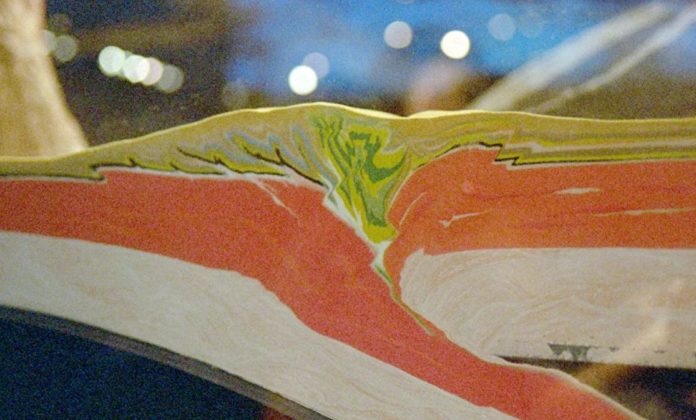Scientists have identified an ancient chunk of the Pacific Ocean’s seafloor that stretches hundreds of kilometers below China. The fragment is being dragged down into the transition zone of the Earth’s mantle.
This rocky slab that used to line the bottom of the Pacific is a relic of the oceanic lithosphere, the outermost layer of the Earth’s surface. It is made up of the crust and the outermost solid parts of the upper mantle.
The surface layer of the lithosphere consists of several fragmented tectonic plates that move slowly across the surface, occasionally colliding with each other. During these collisions, a geological process called subduction zones can occur, in which one plate is forced under the other and ends up being pushed deeper and deeper into the planet.
In a new study, scientists from China and the United States have witnessed this epic phenomenon that takes place in the greatest depths ever observed. The researchers were able to see parts of the tectonic plate that used to be under the Pacific Ocean being pushed into the mantle’s mid-level transition zone, at depths ranging from 410 to 660 kilometers below Earth’s surface.
Thanks to the new images, scientists are getting a better idea of what happens to a subduced plate when it reaches this part of the transition zone, including how deformed it gets and how much water content it loses from its oceanic crust.
“We are still debating whether this water is completely released into that depth. There is growing evidence that some of the water stays inside the plate to go to a much, much deeper level,” says rice University seismologist Fenglin Niu.
“We are still debating whether this water is fully released at that depth. There is growing evidence that some of the water stays inside the plate to go to a much, much deeper level”
says seismologist Fenglin Niu of the Rice University.
